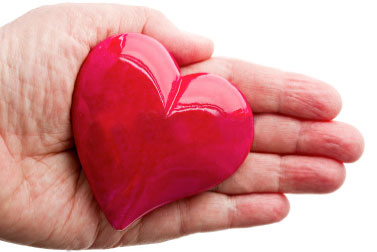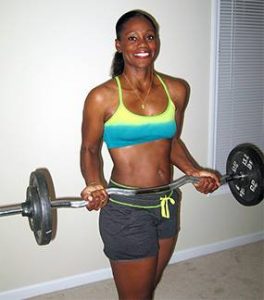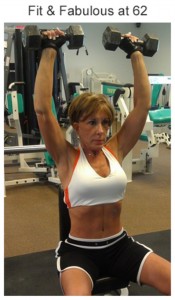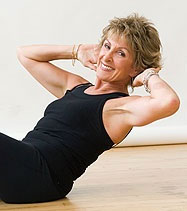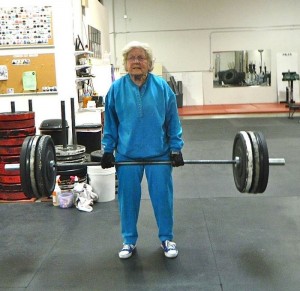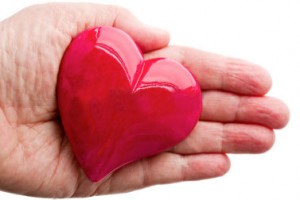 Last week, my 78 year old Mother had Open Heart Surgery unexpectedly after a heart attack that came seemingly without warning. Her heart attack only showed up as a burning sensation in her chest so she actually wasn’t sure what was happening to her because she had no idea she even had heart disease. Other than having high blood pressure and being on blood pressure medication, she was living a healthy lifestyle.
Last week, my 78 year old Mother had Open Heart Surgery unexpectedly after a heart attack that came seemingly without warning. Her heart attack only showed up as a burning sensation in her chest so she actually wasn’t sure what was happening to her because she had no idea she even had heart disease. Other than having high blood pressure and being on blood pressure medication, she was living a healthy lifestyle.
So what happened? And why aren’t women more aware of heart disease? From what I have learned it’s all about a lack of awareness and sometimes even denial.
“A recent national study conducted by the American Heart Association showed that fewer than 50% of American women know that heart disease is their leading killer.” – AMA website
“Heart Disease remains the number one killer of women in the U.S., and younger women are twice as likely to die after suffering a heart attack as men of the same age. – Vogue magazine (Nov 2011 issue)
Cardiovascular disease is the No. 1 cause of death in the United States and it claims the lives of almost 500 000 women each year. There is more awareness and media exposure for about Breast Cancer which claims the lives of about 30,000 women each year.
I have seen denial about health issues first hand with my own family. My mother admitted she ignored the warning signs and how her body was feeling. She thought being tired all of the time, having a hard time sleeping and shortness of breath were just “signs of aging”. Having lived a healthy holistic life she is “shocked” she has heart disease. Like a lot of women she thought she was doing everything right.
Nieca Goldberg, M.D. a cardiologist at NYU’s Langone Medical Center, says, “Women don’t have what I call the Hollywood heart attack that men have – severe chest pain, for instance. They might be tired. They might just feel uncomfortable.”

Denial is common in women with heart disease.
Surveys suggest such denial is common in women with heart disease.
Now after an emergency 5 Coronary Artery Bypass Surgery which saved her life, my mother is asking the big questions. Why did I get this and why didn’t I know I had heart disease? And as her daughter, I am asking those same questions too. Both of my parents now have had heart disease, a genetic predisposition could be one of the risk factors of heart disease.
But noted genetic researcher Dr. Robert Hegele, Heart and Stroke Foundation of Canada Lecturer at the Canadian Cardiovascular Congress 2009, says “When it comes to heart disease, lifestyle usually trumps genetics.”
Dr. Hegele’s work is unraveling the nature vs. nurture debate that has intrigued scientists for years. He says that for about five per cent of patients, the effect of genetics is so strong there is little they can do, but that 95 per cent of us can override our genes by following a healthy lifestyle.
“To be sure diabetes, a result of the obesity epidemic, factors heavily in the recent increase in the heart disease, but there has also been a devastating lapse in awareness, particularly among women. Studies show, for instance, that women today are much less likely to call 911 and more likely to delay going to the hospital than they were just 5 years ago.”
“And yet any hesitation”, notes Elsa- Grace V. Giardina, M.D., a cardiologist and the director of the Center for Women’s Health at Columbia University’s College of Physicians & Surgeons, only makes matters worse. “ When you finally do get to the hospital, there’s been a lot of damage.”
Plus there has been a spike in deaths among younger women in their 30’s and 40’s.
When a heart attack strikes a young woman, she is likely to suffer debilitating damage or die. In a study that looked at gender differences among heart attack victims, researchers found that heart attacks were far more likely to be deadly if the victim was female. In fact, when Dr. Viola Vaccarino and her colleagues looked only at patients under age 50, they found that twice as many women as men died in the days following a heart attack.
Part of the explanation for this frightening statistic is that young women with heart attacks often get either no treatment or they receive delayed care. Sometimes women, and sometimes their doctors, miss the attack because they don’t realize that the symptoms of a heart attack may vary with the patient’s gender, says Vaccarino, an assistant professor of epidemiology at the Yale School of Medicine.
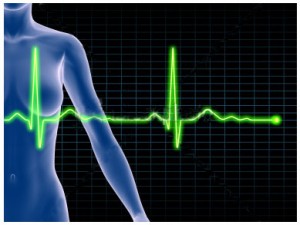
EKG Electrocardiogram
Compared to men, during a heart attack women are much more likely to experience back pain, indigestion and nausea and/or vomiting, rather than chest pain, as their symptoms.
But, while doctors are at a loss to explain why heart attacks occur in otherwise healthy young women, they have pinpointed a group who are at an elevated risk. Women who smoke, are obese, have diabetes and/or high blood pressure are more likely than others to have a heart attack.
My mother had high blood pressure as an elevated risk, but she didn’t smoke, wasn’t obese or have diabetes. Having never taken medications in her life, she is now on a smorgasbord of medicines including a blood thinner called Coumadin,.
The following symptoms could signal heart ills:
1. Angina (chest pain). Can also include back pain or deep aching and throbbing in the left or right bicep or forearm.
2. Breathlessness. Also may include waking up having difficulty catching one’s breath.
3. Clammy perspiration.
4. Dizziness. Unexplained lightheadedness, even blackouts.
5. Edema. Swelling, particularly of the ankles or lower legs.
6. Fluttering. Rapid heartbeats.
7. Gastric upset (or nausea).
8. Heavy fullness. Also may include pressure-like chest pain between breasts and radiating to left arm or shoulder.
If you are experiencing these symptoms please do not wait, contact a doctor immediately for your own safety.
Being aware of personal risk and treatment options can empower a woman to live a long and healthy life.
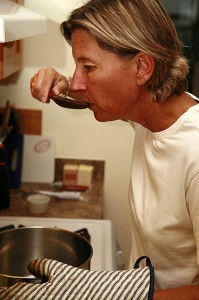
Heart Healthy Cooking
These top 6 Lifestyle Changes are your first line of defense against heart disease:
1. Stop smoking cigarettes and avoid secondhand tobacco smoke.
2. Get at least 30 minutes of physical activity each day. See CrossFit >>
3. Blood pressure is optimal at less than 120/80 mm Hg. If there’s a slight rise in pressure, the first line of self-defense is to improve your lifestyle habits.
4. Cholesterol levels are important for women to know. Total cholesterol optimally should be less than 200 mg/dL; LDL (bad cholesterol), less than 100 mg/dL; HDL (good cholesterol), more than 50 mg/dL; and triglycerides (a type of fat in the blood), less than 150 mg/dL.
5. Eat a heart-healthy diet that includes fruits, vegetables, grains, low-fat or nonfat dairy products, fish, legumes, and sources of protein low in saturated fat (such as, poultry, lean meats, and plant sources). Limit intake of trans fatty acids such as those found in hydrogenated oils.
6. Maintain a healthy weight, balance the calories you eat with the amount you use up each day. Diabetes (high blood sugar) is becoming more common in the United States. Unhealthy eating habits and gaining too much weight are leading causes of type II (acquired) diabetes.
Overwhelming evidence suggests that heart disease can be prevented in women. Every woman should know what her risk level is and her prevention goals and the best way to reach them.
Need more ideas for Cooking Healthy Meals, then check out: The Healthy Urban Kitchen Cookbook The Healthy Urban Kitchen is a simple, step by step system for shopping, cooking and eating the world’s healthiest foods. It was created for busy people who want to improve health, have more energy, and prevent disease.
Robb Wolf’s 30 Day Total Transformation
Do you want to…
Lose weight?
Feel better?
Have more energy?
Reduce inflammation and pain?
Reverse diseases like rheumatoid arthritis, ulcerative colitis, lupus, autism, diabetes, and obesity?
Look, feel, and perform at your best ever?
Get your 60-page Guide for just $25
